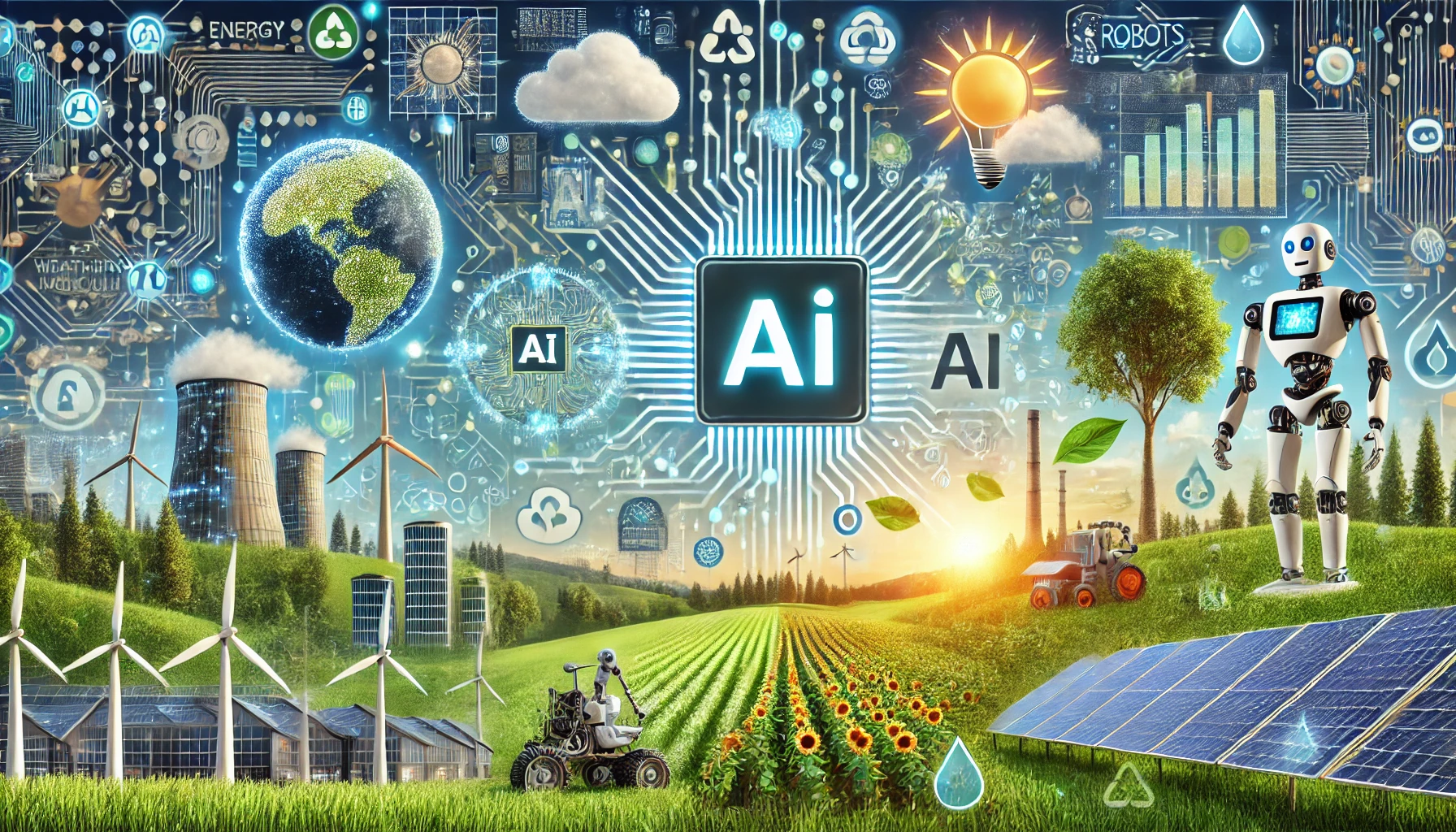The Role of AI in Combatting Climate Change: Smarter Solutions for Sustainability

AI: A New Hope in the Climate Crisis
Artificial intelligence (AI) is stepping up to tackle one of humanity's greatest challenges—climate change. By leveraging machine learning and big data, AI is helping us predict, mitigate, and even prevent environmental damage. Sounds impressive, right? From optimizing energy use to improving weather forecasts, AI’s ability to process massive datasets is opening up new ways to protect the planet. But hey, let’s be real—AI can’t save the world single-handedly. It's a powerful tool, but it’s just one piece of the puzzle.
Smarter Energy for a Cooler Planet
Picture this: You're lounging on your couch, and your AI-powered smart home system automatically dims the lights, adjusts the temperature, and sends unused energy back to the grid. That’s just a small taste of how AI is optimizing energy usage in homes and industries alike. By 2030, AI is predicted to help cut global greenhouse gas emissions by 4%, according to PricewaterhouseCoopers. How? It’s feeding renewable energy like solar and wind power directly into the grid when needed, reducing waste and keeping those pesky emissions in check.
AI Meets Agriculture: Reducing Carbon Footprints One Crop at a Time
Believe it or not, AI is revolutionizing farming. It's like turning farmers into tech wizards who use precision agriculture to lower their carbon footprints while increasing yield. With AI-driven data, farmers can predict weather patterns, track soil conditions, and even manage irrigation better, meaning less water waste and fewer emissions from excessive machinery use. In countries like India, AI tools are helping small farmers enhance crop productivity while reducing carbon emissions, creating a sustainable agricultural system.
Saving the Skies: How AI Improves Weather Predictions
Ever wonder why weather forecasts are suddenly more accurate? You can thank AI. Predicting the weather is notoriously tricky, but AI models are now processing massive amounts of environmental data to make forecasts more reliable. AI-based weather predictions are especially crucial for vulnerable regions, helping communities better prepare for floods, storms, or droughts. The potential to save lives and reduce damage is immense, but so is the impact on reducing the economic toll of extreme weather events.
Is AI a Climate Savior or Energy Guzzler?
Now, before we all bow down to our AI overlords, it’s worth noting that not everything about AI is eco-friendly. Ironically, running AI models can be pretty energy-intensive. Training large AI algorithms requires massive computing power, which can create its own carbon footprint if not managed carefully. So, while AI is helping to cut emissions in some sectors, there’s a real need to make AI itself more sustainable. It's a bit like trying to lose weight while eating cake—it’s possible, but you’ve got to be smart about it.
The Future of AI and Climate Change: A Double-Edged Sword?
Looking ahead, AI is set to become an even bigger player in the fight against climate change. Whether it’s optimizing energy grids, enhancing weather models, or reducing emissions from agriculture and industry, AI has enormous potential. But as we dive deeper into the AI age, we’ll need to make sure the technology itself doesn't create more problems than it solves. So, the next time you ask Siri about the weather, remember—AI might just be saving the planet, one forecast at a time.
What Do You Think?
AI has undoubtedly made waves in the battle against climate change, but it’s still far from perfect. What’s your take? Can AI truly help us avoid climate disaster, or do its own environmental costs outweigh the benefits?



